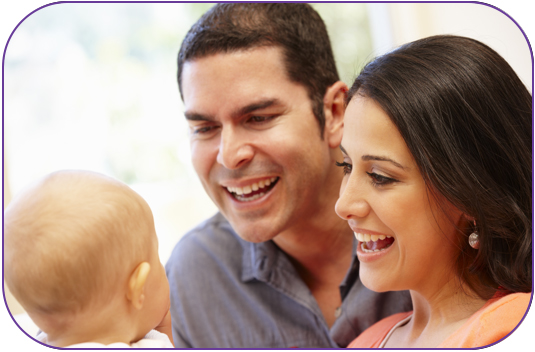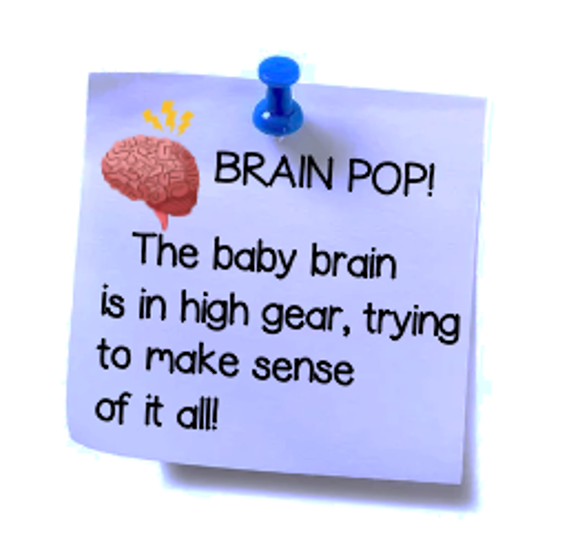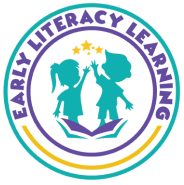The Developing

Early language development has two key components: listening and speaking. These elements were presented separately, but they operate in conjunction with each other. Listening leads the way, since the auditory system is ready to go at birth. Speaking is in the metamorphosis stage — like a chrysalis evolving into a butterfly. The body of a baby does not have the physical or mental capabilities to produce speech yet.
Learning to speak is preprogrammed in the baby brain. However, someone must be available daily to model their native language in order for a baby to produce it later. The exciting news is that every new baby meets their first teacher at birth! Yep, besides being a loving caretaker, the role of teacher is automatically included in the parent package, too!
Parents are lifetime teachers who teach a wide range of concepts and skills, not just the domain of language-communication.
Here are three other important domains and some of their elements:
Parenting is hard that’s for sure--and rewarding too! Delightful experiences show up daily through the exchanges of warm smiles and laughs or wrap around hugs. Welcome and celebrate their accomplishments--first sound or word or sentence. What exciting days! Enjoy the time together, it’s a remarkable language journey!

There’s a wonderful peppy song from an old musical movie, The King and I called “Getting To Know You”. It was written by the famous composers, Rodgers & Hammerstein. A few lines from the chorus are as follows:
Those words really do sum up the months before birth and the first months after birth. Well--actually, the getting to know you phase continues throughout a child’s life and their parents. It’s the newness that’s in the air everywhere for everyone in the beginning. It’s all about “Getting to know each other”, creating family and so much MORE!
Oh, and soon the infant will be in the -- “Getting to know me” phase. How does my body work? What are these hands for? How do I tell them what I need? The baby’s brain is going in high gear, trying to process, respond and make sense of it all.
Parents may be learning to parent for the first time or encountering the change that comes when adding a new family member. This is true, but for a new baby-- it’s ONLY first-time life experiences!
Learning to connect through language begins instantly. The baby has the goal to communicate, express and understand what is being said daily. Parents are partners in helping their child attain language. There are numerous ways to engage and support their development, here are four key learning times:



Fraser-Thrill, Rebecca, MA, (2021), Major Domains in Child Development, verywellfamily, https://www.verywellfamily.com/definition-of-domain-3288323
Moats, Louisa & Tolman, Carol, Speaking is Natural: Reading and Writing Are Not, Reading Rockets, https://www.readingrockets.org/article/speaking-natural-reading-and-writing-are-not
Shananan, Timothy, PH.D., & Loigan, Christopher, PH. D., The Role of Early Oral Language in Literacy Development, Language Magazine, https://www.languagemagazine.com/5100-2/
